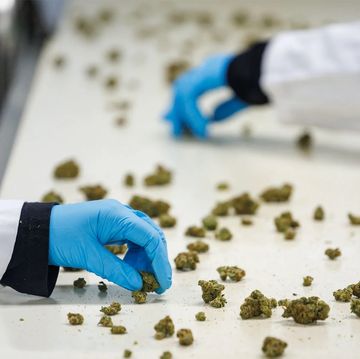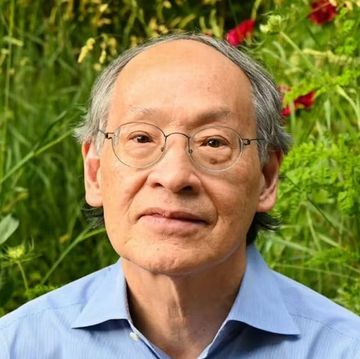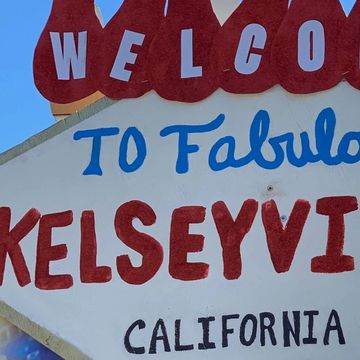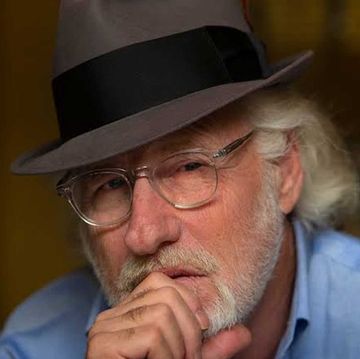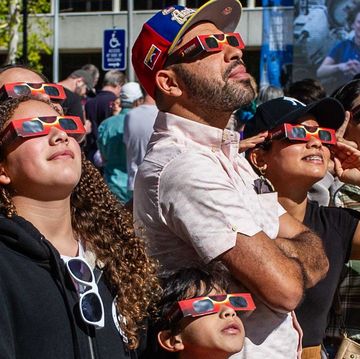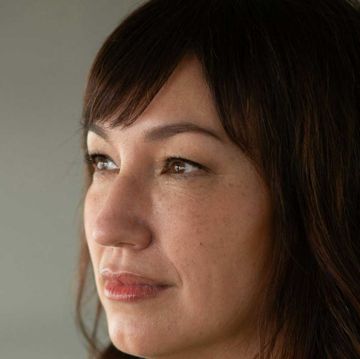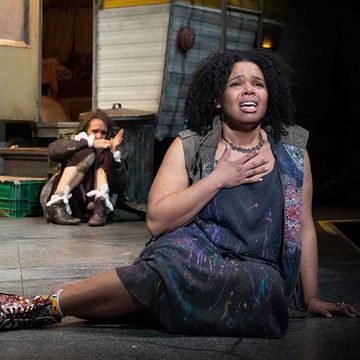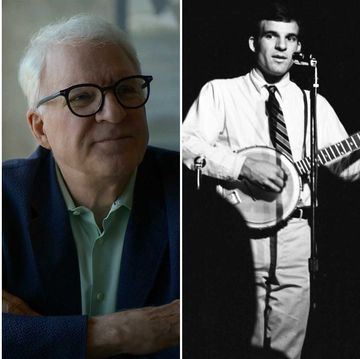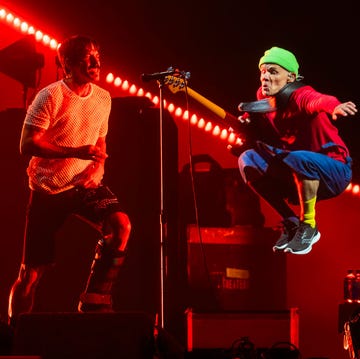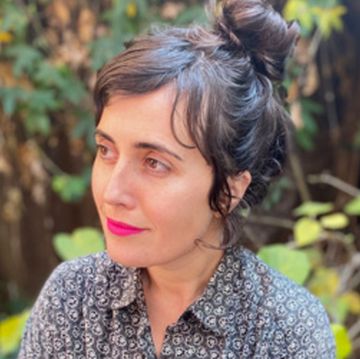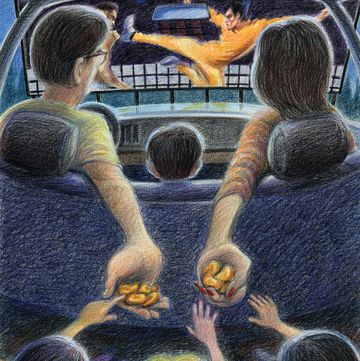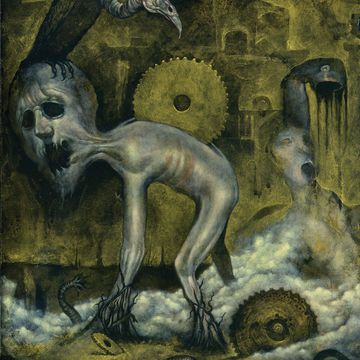Perry Park Skate Plaza doesn’t rely on the staircases, A-frames, hubba ledges, and massive handrails that have become the norm for most skate parks used for competitions like the X Games, Street League Skateboarding, and even the Olympics. Forgoing those daunting obstacles, the Phoenix, Arizona, spot is more accessible, inviting visitors to engage low, curved flat bars and other entry-level objects designed with creative twists that encourage a wider spectrum of skaters to share the space.
The nonprofit Skate After School worked with the Phoenix Parks and Recreation Department to redesign one of Perry Park’s tennis courts, and the result was met with the enthusiastic smashing of heart buttons on #skatetwitter. Skate After School was cofounded by pro skater Ryan Lay, who’s spent the past few years community building and leaning into skateboarding as a tool to dissolve barriers.
In February, Lay organized Slow Impact, a four-day event in Tempe that drew hundreds of attendees from around the world for skate sessions, readings, performances, and panels.
There were no entry fees for Slow Impact—you just showed up. Morning panels like “Empathy and Texture: Skateboarding and Art” were standing room only; afternoon skate sessions and evening social hours followed. Pros skated alongside amateurs. The emphasis was on skaters of all levels coexisting rather than pros demonstrating advanced skills for spectators.
This article appears in Issue 24 of Alta Journal.
SUBSCRIBE
Lay had found inspiration in Wheels of Fortune, a trans-inclusive annual international skate meetup founded by the Seattle nonprofit Skate Like a Girl in 2009, and the conference Pushing Boarders, which combines skating and academia. “There’s not a lot of venues for getting these types of people together,” Lay says. “Getting everyone together is how you supercharge the whole process.”
Here’s a slice of the spectrum of Slow Impact attendees: A Leicester City fan who’d flown across the Atlantic to taste fresh guacamole for the first time. An ’80s pro turned owner of vanguard skate brands. A Smithsonian curator. Touring musicians. Small-business owners checking their sales on smartphones between sessions. PhD candidates and art critics. VHS and DVD skate-video hoarders. A nomadic skate-magazine collector who builds libraries in skate shops across the country.
Panels were conceived to reconfigure skaters’ relationships with space: “You’re Skating on Native Land,” for example, was curated by Maurice Crandall, an associate professor of history at Arizona State University with an emphasis on Native American and Indigenous studies, and featured members of the Apache Skateboards community. “Podium or Per Diem: Making It As a Woman or Non-binary Skater” was overseen by Alex White, one of the most visible women in the skate industry. These talks and the between-panel chats reminded me that skaters, like skateboarding, do not exist in isolation.
At the Friday-night reading curated by author Kyle Beachy, I heard vulnerable testimonies of overcoming anxiety and fleeing violent relationships. A running theme was the solace many of us find through this wooden toy. Gathered here was a peer group I dreamed of meeting in college: thoughtful people of all backgrounds engaging in challenging but necessary conversations about skateboarding. We also got to skate hard, many of us thawing out in the bright Arizona sun after months of winter.
I shared an excerpt from an essay of mine about a former spot in San Francisco called Hubba Hideout and how its trademark element—a massive ledge of a stairway handrail—has been immortalized in both drug slang (hubba means crack cocaine) and street-skateboarding vernacular (any ledge down a flight of steps is a hubba ledge). It was a surreal feeling to read the opening of that essay to a rapt crowd and recall that it was a page I’d labored over, knowing I had just one shot to grab any skater’s attention and gain their trust.
A month after the event, Lay was already considering a second Slow Impact. “There’s all sorts of interesting conversations to have about skateboarding that aren’t just origin stories of pro skaters,” he tells me. “Hopefully, people are inspired to do their own thing.”
Zamara Fabela Marina, a fellow organizer and a Skate After School community outreach coordinator, sees the event resonating beyond those four days in Tempe. “Slow Impact just nourished everyone wanting to be the best versions of themselves on the board,” she says. “Off the board, too.”•
José Vadi is the author of Inter State: Essays from California and Chipped: Writing from a Skateboarder’s Lens, from Soft Skull Press. He lives and writes in California.



